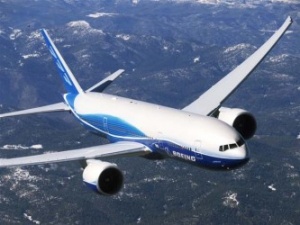Boeing predicts large increase in air cargo market despite current uncertainty

Boeing has released new research suggesting the global air cargo market will expand at a 5.2 per cent annual rate over the next 20 years.
According to the Boeing World Air Cargo Forecast 2012/2013, growth will be driven by world gross domestic product that will nearly double over the forecast period.
Trade is expected to increase through liberalisation of markets and more efficient aircraft and infrastructure improvements will reduce the cost of air cargo.
Boeing released the biennial forecast, which is widely cited by airlines and industry groups, at the International Air Cargo Forum and Exhibition 2012 in Atlanta.
Air cargo traffic will grow over the long term despite current near-term market weakness and worldwide economic uncertainty.
The industry languished following the 2010 recovery posting slight declines in traffic in 2011 and thus far in 2012.
“Current industry uncertainty has brought a disparity of viewpoint concerning the future of the air cargo business, but economic activity - particularly world gross domestic product and industrial production - remains the key driver of the air cargo market,” said Tom Crabtree, regional director, Business Development & Strategic Integration, Boeing Commercial Airplanes.
“Over the long term, indicators such as GDP growth at 3.2 per cent and the need for greater operational efficiency will prevail in the marketplace.”
Boeing forecasts the world freighter fleet will increase to 3,198 airplanes from 1,738 by 2031.
Large freighters - such as the Boeing 747 and 777 - will represent 36 per cent of the fleet, compared to 31 per cent today.
The significant efficiency and capability advantages of large freighters will enable carriers to manage projected traffic growth without increasing the number of airplanes proportionately.
Freighter demand will be met by 935 new factory-built airplanes, valued at $250 billion, with 1,820 freighters coming from passenger-to-freighter conversions.
Conversions will account for about 66 percent of total demand.

